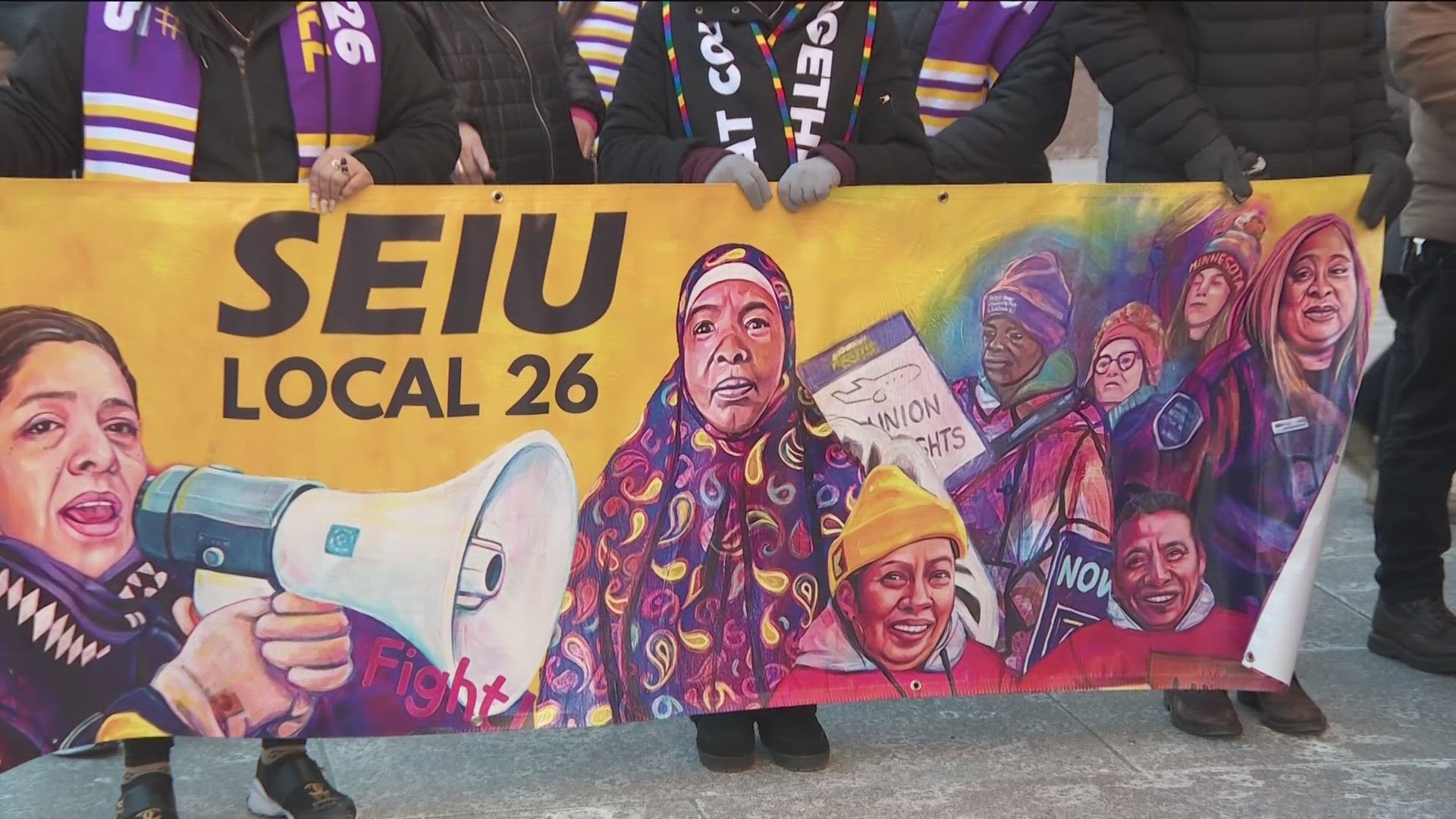MINNEAPOLIS — A Minnesota union has presented its proposal to revitalize downtown Minneapolis. SEIU Local 26, made up of members of commercial, security and retail employees, says improving the area starts with its members.
"Downtown Minneapolis is at a crossroads, and really, downtowns across the country are at a crossroads," said Greg Nammacher, President of SEIU Local 26.
Alongside Minneapolis Mayor Jacob Frey and members of the Minneapolis City Council, the group outlined its proposal. It includes four main points.
The first emphasizes service work, including opportunities for full-time employment, better pay, adding pensions and increasing standards of security training.
"We have bills to pay, family to take care of," Atayde Rios, a janitor and member of the union, said. "Rent and other expenses."
Secondly, the group wants to adopt a municipal standards board for Minneapolis. That board would present ideas and concerns to the Mayor and City Council.
"This is an incredibly important way for workers voices to join the table," Nammacher said.
Also included is the push to convert office space to residential space. Joshua Musikantow is a member of the union and a security officer at an apartment building downtown.
He said many members of his industry can’t afford to live near where they work, leading to longer commutes.
"I think it's time to imagine a revitalized downtown Minneapolis, where the people who work there can live there as well," he said.
The last point pushes for more security training and community-based alternatives. The union's proposal includes the possibility of legislative requirements for minimum training hours.
"I think there's a lot of opportunity right now to work in collaboration with workers, with labor, with business owners to do this right," Frey said.
The Minneapolis Regional Chamber and Minneapolis Downtown Council released a statement Wednesday afternoon in response to the SEIU Local 26 report. In part, the groups said, "While there’s no question that upholding labor standards and ensuring fair working conditions is important, we believe it is crucial to carefully evaluate the potential impact of changes on our local businesses and economy. Our region has a diverse business landscape. We must work together to ensure that any changes don’t introduce regulatory complexities that could disproportionately burden small businesses, hindering their ability to thrive and create jobs."
Also responding Wednesday afternoon was Hospitality Minnesota. In part, Angie Whitcomb, CEO of Hospitality Minnesota, said "While we share a commitment to fair labor practices, we disagree with the notion that the right mechanisms to protect workers are not already in place today. The city maintains strong worker protections ranging from a new minimum wage, earned sick and safe time, and robust wage theft protection laws."
Watch more local news:
Watch the latest local news from the Twin Cities and across Minnesota in our YouTube playlist:

